SEAT Leon vs VW ID.3 - Differences and prices compared
Compare performance (272 HP vs 326 HP), boot space and price (24500 £ vs 28600 £) at a glance. Find out which car is the better choice for you – SEAT Leon or VW ID.3?
Costs and Efficiency:
Price and efficiency are often the first things buyers look at. Here it becomes clear which model has the long-term edge – whether at the pump, the plug, or in purchase price.
SEAT Leon has a slightly advantage in terms of price – it starts at 24500 £, while the VW ID.3 costs 28600 £. That’s a price difference of around 4114 £.
As for range, the VW ID.3 performs decisively better – achieving up to 605 km, about 472 km more than the SEAT Leon.
Engine and Performance:
Power, torque and acceleration say a lot about how a car feels on the road. This is where you see which model delivers more driving dynamics.
When it comes to engine power, the VW ID.3 has a slightly edge – offering 326 HP compared to 272 HP. That’s roughly 54 HP more horsepower.
In acceleration from 0 to 100 km/h, the VW ID.3 is distinct quicker – completing the sprint in 5.70 s, while the SEAT Leon takes 7.70 s. That’s about 2 s faster.
In terms of top speed, the SEAT Leon performs hardly perceptible better – reaching 220 km/h, while the VW ID.3 tops out at 200 km/h. The difference is around 20 km/h.
There’s also a difference in torque: VW ID.3 pulls clearly perceptible stronger with 545 Nm compared to 360 Nm. That’s about 185 Nm difference.
Space and Everyday Use:
Beyond pure performance, interior space and usability matter most in daily life. This is where you see which car is more practical and versatile.
Both vehicles offer seating for 5 people.
In curb weight, SEAT Leon is noticeable lighter – 1344 kg compared to 1787 kg. The difference is around 443 kg.
In terms of boot space, the VW ID.3 offers hardly perceptible more room – 385 L compared to 380 L. That’s a difference of about 5 L.
In maximum load capacity, the SEAT Leon performs slight better – up to 1301 L, which is about 34 L more than the VW ID.3.
When it comes to payload, SEAT Leon hardly perceptible takes the win – 521 kg compared to 473 kg. That’s a difference of about 48 kg.
Who comes out on top?
Overall, the VW ID.3 shows itself to be leaves the rival little chance and secures the title of DriveDuel Champion.
It convinces with the more balanced overall package and proves to be the more versatile choice for everyday use.

VW ID.3
Costs and Consumption
View detailed analysis
Engine and Performance
View detailed analysis
Dimensions and Body
View detailed analysis
SEAT Leon
SEAT Leon pairs sharp, modern styling with a cabin that's sensible and slightly sporty, making it an appealing choice for buyers who want flair without fuss. It drives with eager composure and offers a neat balance of comfort and agility, so you get everyday usability with a wink of fun.
details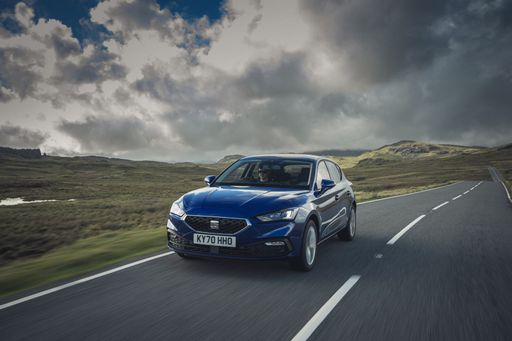
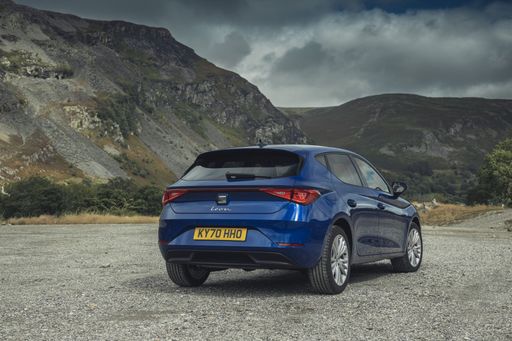
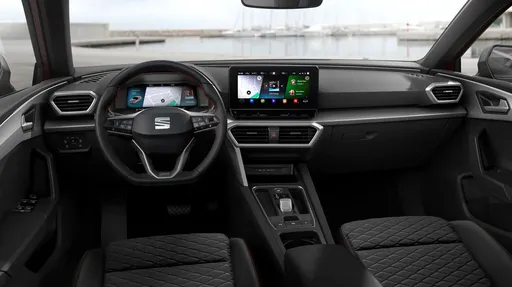
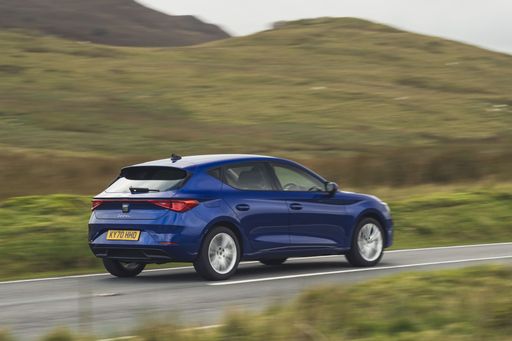
VW ID.3
The VW ID.3 is a crisply styled electric hatch that masks serious practicality behind a friendly, modern face, making city runs and longer trips pleasantly fuss free. For buyers seeking a sensible, well-equipped EV that doesn't take itself too seriously, the ID.3 strikes a neat balance of comfort, tech and everyday usability with a cheeky smile.
details
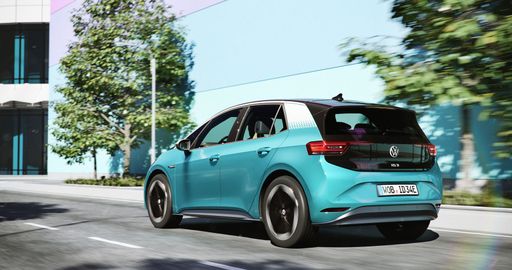
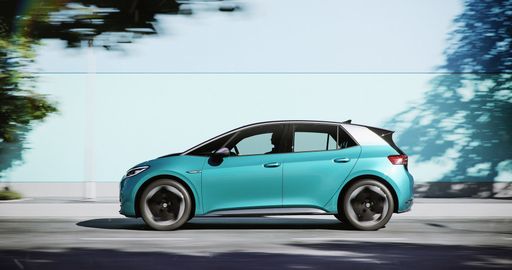
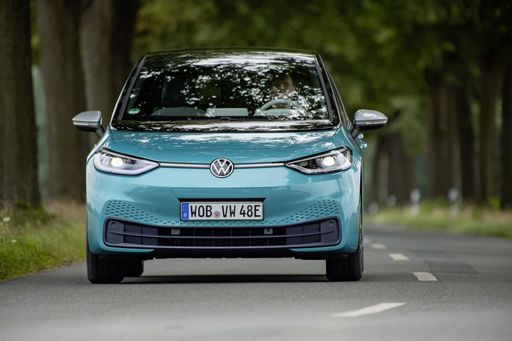
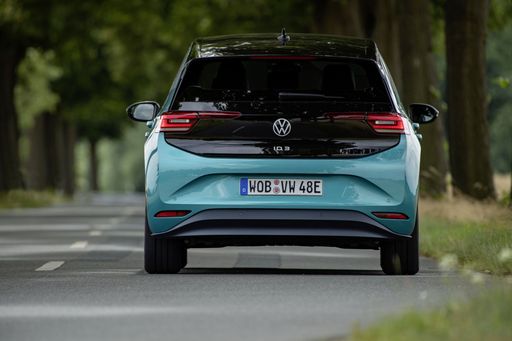
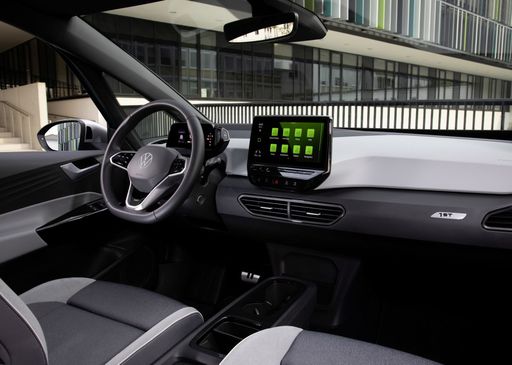


|

|
|
|
|
Costs and Consumption |
|
|---|---|
|
Price
24500 - 36400 £
|
Price
28600 - 49300 £
|
|
Consumption L/100km
1.2 - 5.5 L
|
Consumption L/100km
-
|
|
Consumption kWh/100km
-
|
Consumption kWh/100km
14.5 - 15.8 kWh
|
|
Electric Range
133 km
|
Electric Range
383 - 605 km
|
|
Battery Capacity
19.70 kWh
|
Battery Capacity
52 - 79 kWh
|
|
co2
27 - 126 g/km
|
co2
0 g/km
|
|
Fuel tank capacity
40 - 45 L
|
Fuel tank capacity
-
|
Dimensions and Body |
|
|---|---|
|
Body Type
Hatchback
|
Body Type
Hatchback
|
|
Seats
5
|
Seats
5
|
|
Doors
5
|
Doors
5
|
|
Curb weight
1344 - 1657 kg
|
Curb weight
1787 - 1993 kg
|
|
Trunk capacity
270 - 380 L
|
Trunk capacity
385 L
|
|
Length
4368 mm
|
Length
4264 mm
|
|
Width
1799 mm
|
Width
1809 mm
|
|
Height
1442 - 1460 mm
|
Height
1564 mm
|
|
Max trunk capacity
1187 - 1301 L
|
Max trunk capacity
1267 L
|
|
Payload
473 - 521 kg
|
Payload
437 - 473 kg
|
Engine and Performance |
|
|---|---|
|
Engine Type
Petrol, Petrol MHEV, Diesel, Plugin Hybrid
|
Engine Type
Electric
|
|
Transmission
Manuel, Automatic
|
Transmission
Automatic
|
|
Transmission Detail
Manual Gearbox, Dual-Clutch Automatic
|
Transmission Detail
Reduction Gearbox
|
|
Drive Type
Front-Wheel Drive
|
Drive Type
Rear-Wheel Drive
|
|
Power HP
116 - 272 HP
|
Power HP
170 - 326 HP
|
|
Acceleration 0-100km/h
7.7 - 10.5 s
|
Acceleration 0-100km/h
5.7 - 8.2 s
|
|
Max Speed
197 - 220 km/h
|
Max Speed
160 - 200 km/h
|
|
Torque
220 - 360 Nm
|
Torque
310 - 545 Nm
|
|
Number of Cylinders
4
|
Number of Cylinders
-
|
|
Power kW
85 - 200 kW
|
Power kW
125 - 240 kW
|
|
Engine capacity
1498 - 1968 cm3
|
Engine capacity
-
|
General |
|
|---|---|
|
Model Year
2024 - 2025
|
Model Year
2024 - 2025
|
|
CO2 Efficiency Class
D, B
|
CO2 Efficiency Class
A
|
|
Brand
SEAT
|
Brand
VW
|
What drive types are available for the SEAT Leon?
The SEAT Leon is available as Front-Wheel Drive.
The prices and data displayed are estimates based on German list prices and may vary by country. This information is not legally binding.
